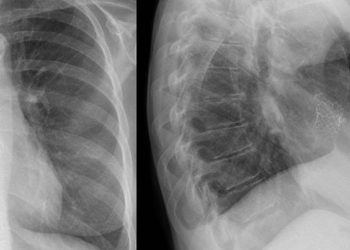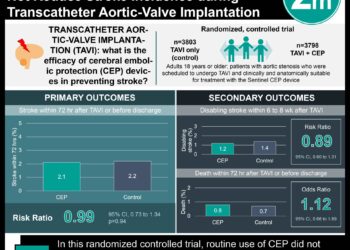Severe mental illness, mortality and coronary revascularisation following a myocardial infarction
1. Patients who had schizophrenia, bipolar disorder or major depression had worse short-term mortality outcomes at 30 days and 1 year and were less likely to receive coronary revascularization.
Evidence Rating Level: 2 (Good)
For patients with severe mental illness (SMI, includes schizophrenia (SCZ), bipolar disorder (BPD) and major depression (MD)), cardiovascular disease (CVD) is a major cause of premature mortality and extensive research has been done on CVD occurrence in this population. There is less data available, however, for CVD outcomes in SMI patients, especially in patients with bipolar disorder and major depression. In this retrospective cohort study, 235 310 adult patients with first myocardial infarction (MI) between 1994-2014 were evaluated for SMI prevalence and CVD outcomes for a median follow-up of 5.3 years. A multivariate analysis was done which included adjusting for age at MI and year of MI (previously unaccounted for in such studies), sex, history of alcohol use disorder, deprivation, urbanciity and health board. Patients with SMI showed worse primary outcomes: 30-day mortality (OR for patients with SCZ 1.95, BPD 1.53, MD 1.37), 1-year mortality (OR for patients with SCZ 2.22, BPD 1.90, MD 1.53), and revascularization within 30 days (HR for patients with SCZ 0.57, BPD 0.69, MD 0.78). Secondary outcomes were also worse for patients with SMI which included 5-year mortality, mortality over the entire follow-up period, time to further vascular event, and time to further MI. Additional analysis showed that these disparities in primary outcomes existed for the duration of study period and highest absolute disparity highest for MIs occurring in participants around 70 years of age. Further studies to be conducted should focus on characterizing this risk, whether it be due to lifestyle factors or related to medications for treatment of SMI.
Click to read the study in BMC Medicine
Image: PD
©2020 2 Minute Medicine, Inc. All rights reserved. No works may be reproduced without expressed written consent from 2 Minute Medicine, Inc. Inquire about licensing here. No article should be construed as medical advice and is not intended as such by the authors or by 2 Minute Medicine, Inc.







